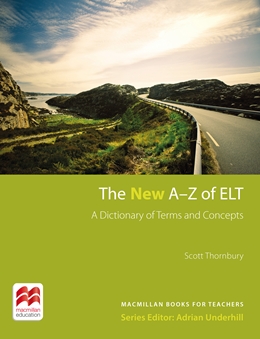
The Hotel Muniria, Tangier, where Burroughs wrote The Naked Lunch
A weekend in Tangier prompted a re-reading of the letters of William Burroughs (Harris 1993) , the US writer who lived there in the 1960s. Apart from their intrinsic interest, there were a number of linguistic oddities that caught my eye. As well as some idiosyncratic spellings (anyhoo for anyhow, innarested for interested), there were some curious non-standard constructions, including at least two instances of I look forward to see you, and these present perfect ‘simplifications’:
A Turkish bath [in London] beats anything I ever see for nightmarish horror.
Tanger is as safe as any town I ever live in.
Venice is perhaps the greatest place I ever see.
See you in Paris which I hope has more innarest than what I see already.
Burroughs was born and brought up in St Louis, Missouri, and these non-standard features might well be characteristic of the local variety. On the other hand, they could also be distinctive features of Burroughs’ own ‘idiolect’, where idiolect is defined as ‘a term used in linguistics to refer to the linguistic system of an individual speaker – one’s personal dialect’ (Crystal, 2003, p.225). Elsewhere, Crystal (1987, p. 24) elaborates on this definition:
Probably no two people are identical in the way they use language or react to the usage of others. Minor differences in phonology, grammar, and vocabulary are normal, so that everyone has, to a limited extent, a ‘personal dialect’. It is often useful to talk about the linguistic system as found in the single speaker, and this is known as an idiolect. In fact, when we investigate language, we have no alternative but to begin with the speech habits of individual speakers: idiolects are the first objects of study. Dialects can thus be seen as an abstraction, deriving from an analysis of a number of idiolects; and languages, in turn, are an abstraction deriving from a number of dialects.
As with dialect, the notion of idiolect is suggestive since it challenges the perception that there is one, monolithic, immutable and standard version of a language.
Equally interesting are the other kinds of ‘lect’ that develop in small speech communities, such as the under-researched language spoken within families (a ‘famililect’?). In her 1963 novel, appropriately titled The Family Lexicon, the Italian novelist Natalia Ginzburg captures this familiar phenomenon (cited in Parks 2017):
My parents had five children. We now live in different cities, some of us in foreign countries, and we don’t write to each other often. When we do meet up with one another we can be indifferent or distracted. But for us it takes just one word. It takes one word, one sentence, one of the old ones from our childhood, heard and repeated countless times… If my siblings and I were to find ourselves in a dark cave or among millions of people, just one of those phrases or words would immediately allow us to recognise each other.
Ginzburg’s mention of the countless repetitions that established this mini-variety reminds me of Guy Cook’s (1994) description of what he called ‘intimate discourse’, defined as ‘discourse between people in a minimal power relations which they would not wish to share with outsiders’ (p.134). This includes what Barthes (2010, p. 1) calls ‘a lover’s discourse’:
This discourse is spoken, perhaps, by thousands of subjects (who knows?), But warranted by no one; it is completely forsaken by the surrounding languages: ignored, disparaged, or derided by them, severed not only from authorities but also from the mechanisms of authority (sciences, techniques, arts).
Cook characterizes such discourse as being – among other things – repetitive and highly redundant, neologistic (i.e. it involves the creation of completely new words), nonsensical, figurative and ‘oriented towards form rather than meaning’ (1994, p. 135). I would also add – from my own experience – that it is frequently macaronic, i.e. it incorporates the playful mixing of different languages.

Former ‘beat’ bar in Hotel Muniria
I’ll spare you cringe-inducing examples of my own, but this example from a letter by the writer Christopher Isherwood (‘Kitty’) to his partner Don Bachardy (‘Dobbin’), gives a flavor (Bucknell 2013, p. 17):
Dearest Angel –
I miss you so much. I think of you all the time and long so to be back in my basket, close to Dobbin.… I just want to work. That and being with Dobbin are all that matters to Kitty, and being with Dobbin matters more than anything….
Cook argues that ‘intimate discourse’ is under-researched (by definition, it’s almost impossible to collect), but that it has a lot to teach us about how language is used – and learned – not least in the way that such frequently occurring discourse is form-focused, non-transactional, ritualized and highly repetitive. Shouldn’t we therefore be including more repetition and rote-learning in our methodology? asks Cook.
I have another question: if Burroughs’ idiolect includes non-standard forms – but was presumably understood and tolerated by his interlocutors – shouldn’t we also consider the learner’s developing interlanguage (frequently non-standard) an idiolect in its own right, and be equally tolerant?

‘There is no town like Tanger town’ (Burroughs)
References
Barthes, R. (2010) A lover’s discourse: Fragments. New York: Hill and Wang.
Bucknell, K. (ed.) (2013) The Animals: Love letters between Christopher Isherwood and Don Bachardy. New York: Farrar, Strauss & Giroux.
Cook, G. (1994) ‘Repetition and learning by heart: an aspect of intimate discourse and its implications’. ELT Journal, 48/2.
Crystal, D. (1987) The Cambridge Encyclopedia of Language. Cambridge: Cambridge University Press.
Crystal, D. (2003) A Dictionary of Linguistics and Phonetics (5th edition). Oxford: Blackwell.
Harris, O. (ed.) (1993) The letters of William S. Burroughs: 1945 to 1959. London: Picador.
Parks, T. (2017) ‘Keep the ball rolling’: A review of The Family Lexicon by Natalia Ginzburg, trans. by Jenny McPhee, NYRB 2017, in London Review of Books, 39/13.



Recent comments